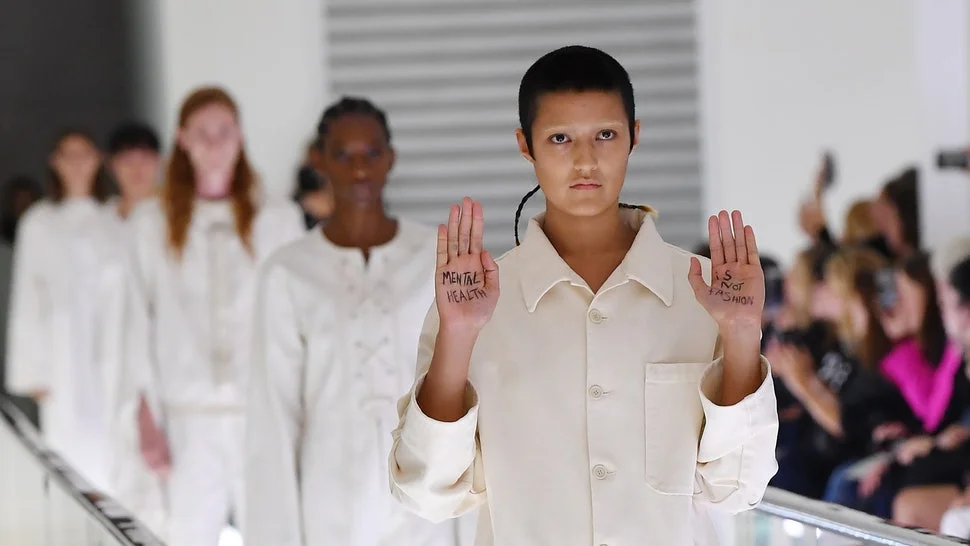Fashion is often seen as a form of self-expression, creativity, and identity. Yet, beyond aesthetics, clothing and personal style can significantly influence mental health. From boosting confidence to reducing anxiety, the way we dress can play a vital role in how we feel, think, and interact with the world.
In today’s fast-paced world, where social media and societal expectations shape our self-image, understanding the link between fashion and mental health is more important than ever. By making mindful choices about what we wear and how we approach style, we can create positive effects on our overall well-being.
How Fashion Affects Mental Health
- Boosts Self-Confidence
The right outfit can instantly elevate your mood and sense of self-worth. Wearing clothes that align with your personality or highlight your strengths can reinforce a positive self-image. - Encourages Self-Expression
Fashion is a medium to communicate your identity, creativity, and values. Choosing bold colors, unique patterns, or classic pieces allows you to express emotions and personality without saying a word. - Reduces Anxiety and Stress
Comfortable, well-fitting clothing can lower feelings of discomfort and self-consciousness. Additionally, engaging in mindful shopping—rather than impulsive or stressful purchases—can reduce anxiety. - Promotes Mindfulness
Curating a wardrobe thoughtfully encourages reflection on your values, lifestyle, and priorities. Practices like Mood-Based Outfit Planning can help individuals align their daily choices with mental well-being. - Fosters Connection and Belonging
Clothing can act as a social signal, helping people feel included within communities or subcultures. Wearing pieces that reflect shared values or trends can nurture a sense of belonging.
Sustainable Fashion and Mental Health
Sustainability in fashion not only benefits the environment but also has a positive impact on mental health. Knowing that your clothing is ethically produced and contributes to a fairer system can improve feelings of purpose and reduce guilt associated with fast fashion.
- Fair Trade Fashion: Supporting fair trade practices ensures that workers are treated ethically, receive fair wages, and work in safe conditions. Choosing these products allows consumers to feel aligned with their values, which can positively impact mental well-being.
- Minimalist Wardrobes: Reducing clutter and focusing on high-quality, versatile pieces can create a calming environment and reduce decision fatigue.
- Slow Fashion: Purchasing fewer, durable items encourages mindful consumption and long-term satisfaction rather than temporary gratification.
Clothing Choices that Support Mental Health
| Clothing Type | Mental Health Benefit | Example |
|---|---|---|
| Bright Colors | Boosts mood and energy | Yellow tops, red jackets |
| Comfortable Fabrics | Reduces anxiety and tension | Cotton, bamboo, soft knits |
| Statement Pieces | Encourages self-expression | Bold accessories, patterned dresses |
| Layered Outfits | Provides a sense of security | Cardigans, scarves, jackets |
| Eco-Friendly/Sustainable | Aligns with personal values | Fair trade or organic materials |
Fashion Rituals for Mental Well-Being
- Mood-Based Outfit Planning
Take a few minutes each morning to select clothing that reflects your emotional state or desired mood for the day. This small act of self-care can improve confidence and mindset. - Capsule Wardrobe Approach
Curate a simplified wardrobe of versatile pieces that you love. This reduces decision fatigue, decreases stress, and promotes intentionality in daily choices. - Wardrobe Detox
Regularly declutter your closet, keeping only items that bring joy and comfort. A tidy, intentional wardrobe can create mental clarity and reduce overwhelm. - Fashion Journaling
Document what you wear and how it affects your mood. Tracking patterns can help identify which styles and colors improve your mental state. - Ethical and Sustainable Choices
Opting for brands that prioritize ethical production, like Fair Trade Fashion, fosters a sense of contribution and purpose. Supporting these brands can create a positive emotional connection to your clothing.
Common Mental Health Challenges and Fashion Solutions
| Challenge | Fashion Solution |
|---|---|
| Low Self-Confidence | Wear empowering colors, tailored fits, or signature accessories |
| Anxiety | Choose soft, comfortable fabrics and layered clothing |
| Stress | Minimalist or capsule wardrobe to reduce choice overload |
| Social Pressure | Self-expression dressing and personalized style |
| Guilt Over Consumption | Sustainable, eco-friendly, or fair trade options |
FAQs About Fashion and Mental Health
Q1. Can clothing really affect mood?
Yes, studies show that color, fit, and style can influence emotions, confidence, and perceived competence.
Q2. What is Mood-Based Outfit Planning?
It is the practice of selecting clothing according to your current or desired emotional state to improve mental well-being.
Q3. How does sustainable fashion support mental health?
Knowing your purchases are ethical reduces guilt and promotes alignment with personal values, enhancing overall happiness.
Q4. Are there specific colors that boost mental health?
Bright, warm colors like yellow, orange, and red can increase energy and positivity, while calm blues and greens promote relaxation.
Q5. How can I make fashion a mindful practice?
Curate a capsule wardrobe, track how clothing affects your mood, and choose pieces that align with your values, such as Fair Trade Fashion products.
Final Thoughts
Fashion and mental health are deeply intertwined. The clothes we wear can influence mood, confidence, and overall well-being. By making intentional choices—whether through Mood-Based Outfit Planning, adopting a minimalist or capsule wardrobe, or supporting ethical and sustainable brands like Fair Trade Fashion—we can create a wardrobe that supports both our mental and emotional health.
Ultimately, fashion is not just about style—it is a tool for self-expression, empowerment, and mindfulness. By embracing conscious choices and understanding the impact of clothing on mental health, we can transform our daily routines into acts of self-care and positive reinforcement.







